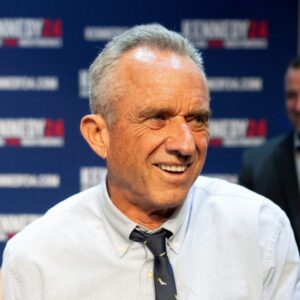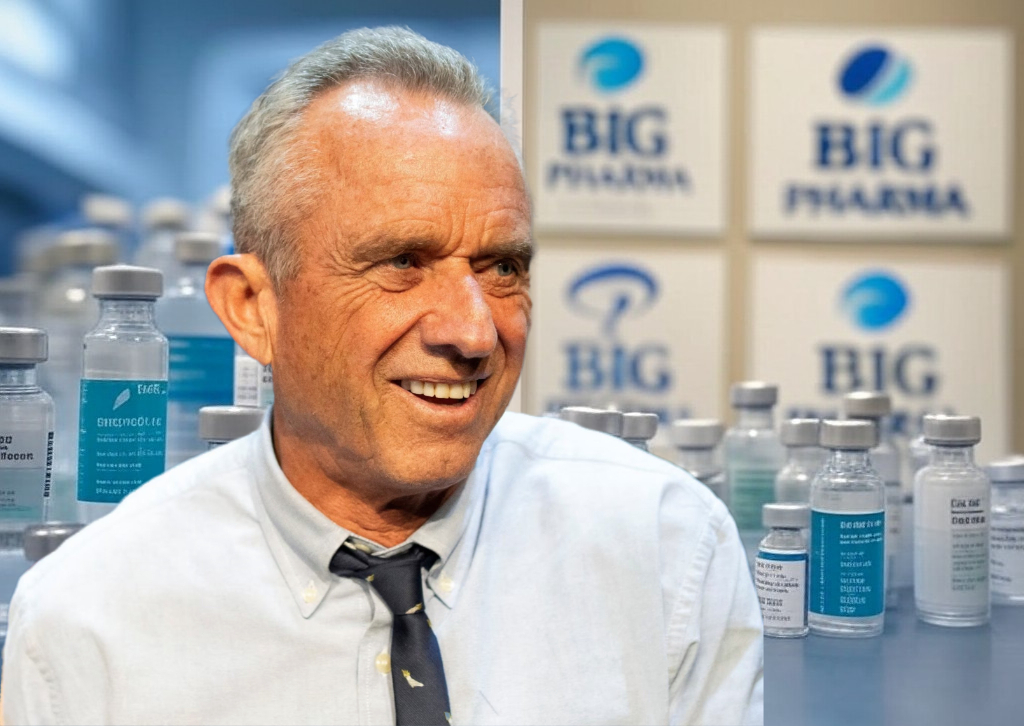Luthmann defends RFK Jr., calls for deeper study of vaccines’ links to autism and chronic diseases.
Robert F. Kennedy Jr. continues to make headlines as his vaccine skepticism fuels fierce public discourse. On the latest episode of The Unknown Podcast, hosts Michael Volpe and Richard Luthmann dove into Kennedy’s controversial stance, dissecting the science, policy implications, and public fears.
“I don’t think you should be concerned,” Luthmann said, countering widespread criticism of Kennedy. “We don’t fully understand the relationship between vaccines and chronic diseases like autism, diabetes, and obesity. We need independent studies.”
The RFK Jr. Controversy
Kennedy, who has long opposed mandatory vaccination policies, has been accused of spreading misinformation linking vaccines to autism and chronic diseases. Critics argue his rhetoric fuels distrust in established public health practices, risking outbreaks of preventable diseases.
“He showed up, talked against vaccines, and then vaccination rates plummeted. The deaths speak for themselves,” he said.
Luthmann fired back, asserting the need for balanced discourse.
“It’s irresponsible to label this as causation without proper investigation,” he argued. “Vaccines may save lives, but we must examine their long-term effects. Ignoring potential trade-offs, like increases in chronic illnesses, does a disservice to public health.”
A Debate Rooted in History
Kennedy’s skepticism isn’t without precedent. Dr. Andrew Zimmerman, a pro-vaccine pediatric neurologist, revealed in a 2019 affidavit that vaccines could trigger autism in children with specific pre-existing conditions. According to Zimmerman, this knowledge was suppressed by government lawyers to maintain public trust in vaccines.
Zimmerman’s claims resonate with Kennedy’s calls for more rigorous safety protocols.
“RFK Jr. isn’t advocating for the end of vaccines; he’s advocating for informed choice,” Luthmann said. “If independent studies validate his concerns, public health policies must adapt.”
Public Health Experts Respond

Many experts fiercely oppose Kennedy’s claims. Lawrence Gostin, a public health law professor, warned, “He’ll make America sick again.”
Vaccine advocates argue Kennedy’s position undermines herd immunity, opening the door for resurgent epidemics of diseases like polio and measles. Volpe echoed these concerns, questioning Luthmann’s stance.
“Do you really believe vaccines are driving obesity and diabetes more than fast food?” he asked, referencing the broader skepticism surrounding Kennedy’s theories.
Luthmann remained steadfast.
“We don’t know enough about the biochemical effects of vaccines over generations,” he said. “If Kennedy’s administration prioritizes comprehensive studies, it could revolutionize vaccine science.”
Balancing Risks and Benefits
The conversation also highlighted differing approaches to vaccine policy. Kennedy’s detractors argue his skepticism fuels fear and misinformation. Supporters, like Luthmann, see him as a necessary disruptor challenging a pharmaceutical industry they believe prioritizes profit over safety.
“This isn’t about banning vaccines,” Luthmann clarified. “It’s about ensuring safety and accountability. If even one child suffers adverse effects, shouldn’t we investigate why?”
Kennedy himself has emphasized choice over coercion, stating, “We’re not going to take vaccines away from anybody.”
Yet, his critics worry his rhetoric emboldens anti-vaccine movements, undermining decades of progress against infectious diseases.
The Path Forward
As the debate rages on, one thing remains clear: Kennedy’s stance has reignited a national conversation about vaccine safety. Whether his claims lead to scientific breakthroughs or public health setbacks, the stakes couldn’t be higher.
“RFK Jr. was once a punchline,” said Karen Ernst of Voices for Vaccines. “Now, he’s a force to be reckoned with, for better or worse.”
The podcast ended on a charged note. Volpe questioned whether Kennedy’s policies would endanger lives, while Luthmann stood firm.
“Do we want a sick population dependent on chronic care, or do we want to explore the root causes of illness?” he asked. “The choice is ours.”
The Debate Continues
The future of vaccine mandates will be defined by the intersection of science, policy, and public opinion. For now, Kennedy’s polarizing views ensure this debate is far from over.





Leave a Reply